Are you a beginner gardener and find yourself constantly making gardening mistakes? Are you unsure how to fix these errors? Or even how to prevent them? If you answered yes, you are not alone! Every gardener makes mistakes! But how do you avoid making these mistakes again? After researching and working with gardening experts, I've created the 25 most common gardening mistakes and how to avoid them! The following content also has some reference value for raised garden beds.
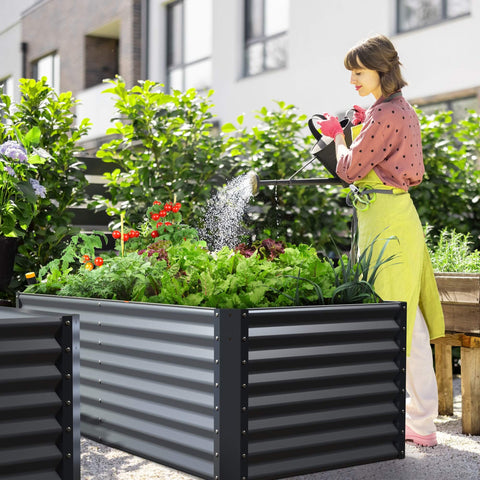
- Watering is wrong
One of the most common mistakes beginners make is to water plants the wrong way.
Most gardeners either water the wrong way or at the wrong time.
This can prevent the growth of flowers and fruit, and even lead to plant death in extreme cases.
How to avoid this problem?
Be sure to water your garden and plants in the morning or after the sun goes down.
Watering in the middle of the day will cause most of the water to evaporate, potentially "burning" your plants and causing long-term damage. Also, never water the leaves of a plant. Be sure to water plants where they come into contact with the soil. This will ensure that your plants get all the water they need.
- Plant in the shade
Another common gardening mistake is to plant your garden in a shady area.
This often happens to beginning gardeners who don't know that their plants need sunlight.
How to avoid this problem?Don't plant your garden or plants under big trees.
Most vegetables, flowers and fruits need at least eight hours of sun to prevent sunburn. Also, be sure to research whether your plants need full, partial, or full shade.
- Dig in moist soil and clay
If you're like me, you want to plant your garden every chance you get. Even if it means the soil is wet.
This can cause a lot of problems for you and your garden.
The questions include:
- The root system of the plant does not spread
- Nutrients don't reach plants
- Soil hardens and plants die.
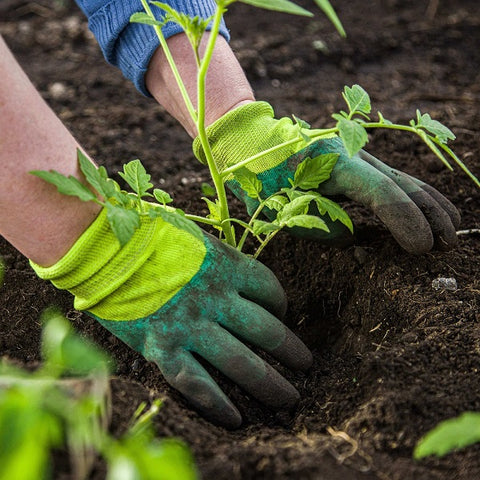
How to avoid this problem?
Wait until the soil is dry. You know your soil is dry when it feels dry, but if it's light brown, it breaks down easily in your hands.
- Overwatering houseplants
One of the most common gardening mistakes that almost any beginner gardener makes is overwatering houseplants.
One of the fastest ways to kill houseplants like orchids is to overwater them. It only takes one or two times of overwatering to kill your indoor plants.
How to avoid this problem?
For indoor house plants, it is better to water less than more. For most house plants like succulents, you should only water them once a week. A sign that your plant needs watered is if the potting soil feels dry or if your plant begins to droop.
- Poor weeding
One of the most common mistakes novice gardeners make is not weeding.
Not weeding or weeding poorly can result in:
- Your garden is not getting the nutrients it needs
- Plants are overgrown with weeds
- Plants may be killed by noxious weeds.
How to avoid this problem?
The first way to avoid garden weed problems is to weed early and often.
- Don't fertilize properly
Fertilizing is tricky. Most beginner gardeners want to fertilize plants as soon as they are in the ground.
Other gardeners often never fertilize their plants because they don't know what to use or how to use it.
Both of these errors are possible:
Long-term damage to plants
- Prevent flowers from blooming
- Prevent fruit growth.
How to avoid this problem?
The best way to prevent this gardening mistake is to read the instructions that come with plants and fertilizers. You need to pay special attention to the ratio of nitrogen, phosphorus and potassium required by specific plants. It is also recommended not to fertilize plants during their first year of growth.
- Plant too early
Another of the most common gardening mistakes is planting plants into the ground too early.
This results in:
- Frost can damage or kill your plants
- Plants are not growing properly
- Plants that do not bear fruit.
How to avoid this problem?
This mistake is one of the hardest to avoid because you never know when the last frost will be. To minimize this, I suggest you find the last frost date here and plant it a week or two later.
- Conserve soil
If you're like me, when I first started gardening, I never used soil. I just dug a hole, put my plants in it, and backfilled it with the soil I dug out.
This is a bad technique. It doesn't provide your plants with the nutrients they need.
How to avoid this problem?
The easiest way to avoid this beginner's mistake is to dig the hole first, put the plant in the hole, and backfill it. For fruits, vegetables, and herbs, you should use nutrient-rich garden soil. If you want to spend, you need to spend soil. Peat moss is perfect for berry bushes.
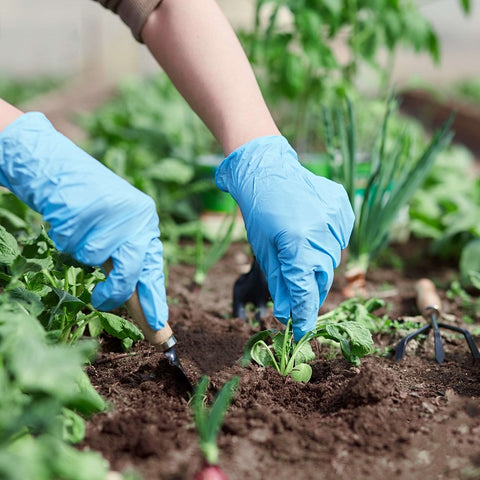
- Harvesting too late
Sometimes it's hard to decide when to harvest fruits, vegetables, herbs, or even flowers.
If you wait too long, your crop may not be good and may rot or even spread disease to other plants.
How to avoid this problem?
The easiest way to avoid this problem is to harvest early. By harvesting your crops early, you allow fruits, vegetables, herbs, and flowers to continue ripening without rotting or attracting pests.
- Planting too much
Another of the most common mistakes gardeners make is something that happens every year.
Most gardeners grow too many plants in their gardens.
Having too many plants in the garden can lead to crowding, and:
- Prevent your plants from getting nutrients
- Invasive species
- Death
How to avoid this problem?
Follow the plan and instructions for spacing your plants. If it says to space the tomato plants four feet apart, do it.
- Ignore spacing
Most gardeners neglect spacing when planting.
This can lead to overcrowding, lack of nutrients, and invasive plants like mint.
How to avoid this problem?
Is it important to follow instructions when it comes to spacing and planting?
- Don't use fences
Another common mistake gardeners make is failing to use fencing around plants.
If you don't use a fence, you will have pests and other animals coming in that could damage your garden.
How to avoid this problem?
The best way to protect your garden from harmful pests and other animals is to build or purchase a fence. Fences not only protect your garden, but also make your yard and garden more beautiful.
- Don't use pollinators
Another common and easy mistake most gardeners make is not using pollinators to help grow bigger, better, and more plants.
That's because attracting bees, hummingbirds and butterflies is difficult, time-consuming and sometimes inconsistent.
How to avoid this problem?
Attracting pollinators is not difficult. Just plant something that appeals to them. It's that simple!
- Not checking your hardiness zone
Another most common mistake novice gardeners make is failing to check the hardiness zone of plants.
This can result in your plants not growing properly, being more susceptible to diseases, being attacked by pests, and sometimes even dying.
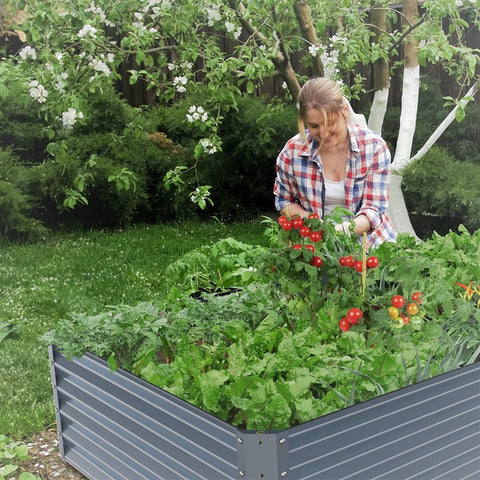
How to avoid this problem?
This is the simplest tip on the list. All you need to do is look up the plant you want to grow, which is cold resistant, and your cold resistant zone. If the plant lands in the hardy area where you live, you're fine. If not, you can still develop it, but probably not with as much success.
- Not checking your soil pH
Just as failing to check stress resistant areas can cause problems with plants, the same can happen with failing to check soil ph.
This can again lead to pest and insect problems, poor fruit development, and even plant death.
How to avoid this problem?
The easiest way to determine if your plants can grow in your garden is to check the ph of the soil with a ph meter. If the ph of the plant is in the ph range of the soil, then you have it all figured out. If not, you can still develop it, but probably not with as much success.
- Planting too shallow or too deep
You can have the best weather conditions, perfect soil, no pests, and still have a terrible garden.
This usually happens when you plant too deeply and the seeds, bulbs, or plants are not growing fast enough.
It can also happen when you leave plants too shallow and wind, rain and pests damage your garden.
How to avoid this problem?
Don't rush into gardening. Do your research and plant seeds, bulbs or plants to the required depth.
- No mulch
If you notice too many weeds, dead plants, or even frozen plants in your yard, it may be because you're not using mulch.
One of the most common mistakes farmers, homesteaders and gardeners make is never using or replacing mulch.
How to avoid this problem?
To avoid this problem, all you need to do is cover the roots of the plant with 3-6 inches of mulch. Then each year you should replace or add to your existing mulch.
It should be noted that black mulch really looks brown, and brown mulch will look very faded and dull.

- Failure to control pests
One of the quickest ways for a barren or dying garden is to let the pests take over.
Advanced and junior gardeners often decide not to control or prevent insects.
The main reason is that they don't know how to control pests.
How to avoid this problem?
The easiest way to control pests is to prevent them before they happen. But if it's too late, you can use pesticides to control and kill harmful insects.
- Planting the wrong plant
Although less common, sometimes gardeners grow the wrong plants.
This usually happens if you don't know your hardiness zone, the ph of your soil, or if the plants you're growing don't match up with the others.
How to avoid this problem?
Follow my "How to" guide to help you properly select, grow and care for the right plants for your garden.
- Create a garden that's too big
Another of the most common gardening mistakes is to build a garden that is too big.
This happens when your eyes are bigger than your stomach.
This not only wastes space, but also depletes the soil of valuable nutrients.
How to avoid this problem?
Simply put, plan what you want to grow before you even start gardening. If you have a garden that is too big, you can always reduce the size for next year. Even worse, you can give your crops to neighbors, friends and family.
- Do not rotate crops
There are mistakes you don't even know you're making.
One such mistake is not rotating crops.
Not rotating crops depletes the soil of valuable nutrients, resulting in less plant growth and less harvest.
How to avoid this problem?
To avoid this problem, all you need to do is rotate your plants every year.
- Not using native species
If you make an effort to grow plants in your garden, it could range from planting non-native species to your hardiness zone or even invasive plants.
This will cause your plants not to grow fully and may affect other plants in your garden.
How to avoid this problem?
You should always check with your local garden center, gardening expert or thegardeningdad.com that you are growing native plants in your garden.
- No garden design
While this error will not affect your plants, not having a garden design may affect the number of plants you can use.
It also affects how much land you use and the efficiency of your garden.
How to Avoid This Problem?
Before you plant your garden, you should outline your land, where your garden should be, and where your plants should be.
- Forget plant labels
Have you ever grown a plant from a seed or bulb and then forgotten what it was a few weeks later?
This happens when you forget to label seeds, bulbs and plants.
How to avoid this problem?
To avoid forgetting what you grew, all you need to do is use it.
- No trimming
Are you struggling to produce fruit, vegetables and flowers?
Did you not get enough crops as you wanted?
This may be because you are not pruning your plants
How to avoid this problem?
If you want the best plants to grow, the best crops, and more crops, then you need to prune!
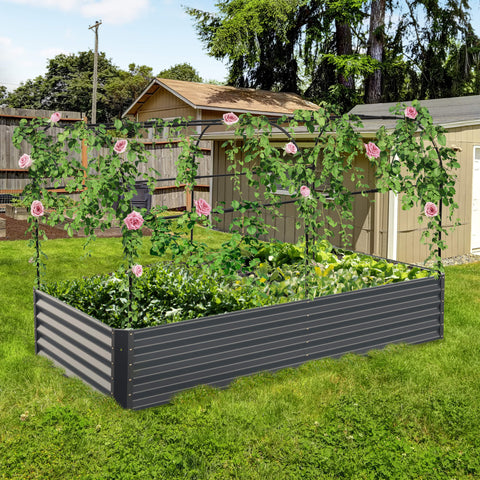
Conclusion
After reading this article, you should now have a better idea of the most common mistakes gardeners make.
Not only that, but you should also better understand how to avoid these problems.
This will help you have a better, more productive garden for years to come.









